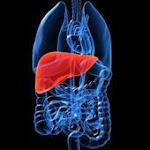Coffee drinking improves Hepatitis C treatment response (Hepatitis C / Liver Transplant & Biopsy (Hep C) HCV Blog)
Tuesday, 7 June 2011
Mmm.. Coffee, I knew I loved drinking it so much for a reason. And after drinking several strong 'blasts' in the morning, I find I get so much more achieved. And now they tell me 'it's good for you'...Should help with my forthcoming treatment, I have a treatment review on Monday at St Jimmy's. So for now, I'll have another shot then please :)
Advanced hepatitis C patients with chronic liver disease may benefit from drinking coffee during treatment, according to a new study in Gastroenterology, the official journal of the American Gastroenterological Association (AGA) Institute. Patients who received peginterferon plus ribavirin treatment and who drank three or more cups of coffee per day were two times more likely to respond to treatment than non-drinkers.
"Coffee intake has been associated with a lower level of liver enzymes, reduced progression of chronic liver disease and reduced incidence of liver cancer," said Neal Freedman, PhD, MPH, of the National Cancer Institute and lead author of this study. "Although we observed an independent association between coffee intake and virologic response to treatment, this association needs replication in other studies."
Among non-drinkers, 46 percent had an early virologic response; 26 percent had no detectable serum hepatitis C virus (HCV) ribonucleic acid at week 20; 22 percent had no detectable serum at week 48; and 11 percent had a sustained virologic response. In contrast, the corresponding proportions for those who drank three or more cups of coffee per day were 73 percent, 52 percent, 49 percent and 26 percent, respectively.
Approximately 70 to 80 percent of individuals exposed to HCV become chronically infected. Worldwide, these individuals are estimated to number between 130 and 170 million. Higher coffee consumption has been associated with slower progression of pre-existing liver disease and lower risk of liver cancer. However, the relationship with response to anti-HCV treatment had not been previously evaluated. Treatment with peginterferon and ribavirin resolves chronic hepatitis C in about half of patients. It is unknown whether coffee will improve response with the addition of new drugs that were recently approved for use in the U.S.
Because patients in the Hepatitis C Antiviral Long-term Treatment against Cirrhosis Trial also had previously failed interferon therapy, it is not clear whether the results can be generalized to other patient populations. Future studies among patients with less advanced disease, those who are treatment-naïve to prior therapy, or who are being treated with newer antiviral agents are needed.
With thanks to: Science Codex
Source: American Gastroenterological Association
Advanced hepatitis C patients with chronic liver disease may benefit from drinking coffee during treatment, according to a new study in Gastroenterology, the official journal of the American Gastroenterological Association (AGA) Institute. Patients who received peginterferon plus ribavirin treatment and who drank three or more cups of coffee per day were two times more likely to respond to treatment than non-drinkers.
"Coffee intake has been associated with a lower level of liver enzymes, reduced progression of chronic liver disease and reduced incidence of liver cancer," said Neal Freedman, PhD, MPH, of the National Cancer Institute and lead author of this study. "Although we observed an independent association between coffee intake and virologic response to treatment, this association needs replication in other studies."
Among non-drinkers, 46 percent had an early virologic response; 26 percent had no detectable serum hepatitis C virus (HCV) ribonucleic acid at week 20; 22 percent had no detectable serum at week 48; and 11 percent had a sustained virologic response. In contrast, the corresponding proportions for those who drank three or more cups of coffee per day were 73 percent, 52 percent, 49 percent and 26 percent, respectively.
Approximately 70 to 80 percent of individuals exposed to HCV become chronically infected. Worldwide, these individuals are estimated to number between 130 and 170 million. Higher coffee consumption has been associated with slower progression of pre-existing liver disease and lower risk of liver cancer. However, the relationship with response to anti-HCV treatment had not been previously evaluated. Treatment with peginterferon and ribavirin resolves chronic hepatitis C in about half of patients. It is unknown whether coffee will improve response with the addition of new drugs that were recently approved for use in the U.S.
Because patients in the Hepatitis C Antiviral Long-term Treatment against Cirrhosis Trial also had previously failed interferon therapy, it is not clear whether the results can be generalized to other patient populations. Future studies among patients with less advanced disease, those who are treatment-naïve to prior therapy, or who are being treated with newer antiviral agents are needed.
With thanks to: Science Codex
Source: American Gastroenterological Association
















0 comments:
Post a Comment